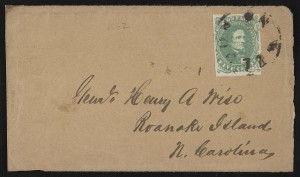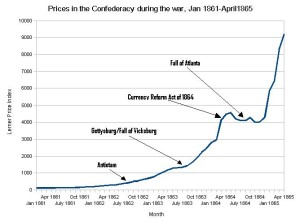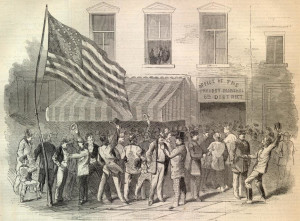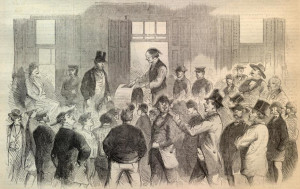It’s been quiet along the major Eastern front. The Army of Northern Virginia is keeping busy with drills and reviews, the latter attended by women spectators. The soldiers seem to be well-fed and desertions are down, thanks to General Lee’s grants of furloughs and leaves of absence.
From the Richmond Daily Dispatch August 30, 1863:
Our army correspondence.
Army Northern Virginia,
August28, 1863.
Since my last, no demonstration has been made by the enemy’s cavalry, save the crossing at Ellis’s Ford of about four hundred, who came with their side arms only. The object of the visit, it appears, was to secure a number of cattle belonging to a citizen, who, it is alleged, had removed from his place of residence on this side of the river, with all his goods and chattels, to within the Yankee lines. The expedition ended in a failure, and the capture of several prisoners by us.
The gallant Mosby is understood to be again in the saddle, and his success cannot be doubted.
Beyond this, the most perfect stagnation continues to prevail on both sides. In our own camps, however, drills, inspections, and reviews, are of daily and weekly occurrence, which furnish a pleasant relief from the monotony of camp life. During the present week Gen. A. P. Hill has reviewed the veterans of Anderson’s, Heth’s, and Wilcox’s divisions. The respective brigades were in excellent condition, and presented an imposing illustration of the “pomp and circumstance of glorious war.” These occasions are largely attended by both sexes — especially by the fair sex, who grace and enliven the scene by their presence. On the authority of an Assistant Inspector-General of Gen. Lee’s Staff, whose weekly rounds of the army afford that scrutinizing officer ample opportunities for knowing, the whole army was never at any period of the war in better condition or fighting trim than at the present juncture. Well shod, clothed, and fed, and always in most exuberant spirits, they could not be otherwise. The camps are eligibly situated and regularly policed, and particular attention given to measures for the preservation of health. As an illustration of the present healthful condition of the army, only about ten of Ewell’s corps are on an average daily sent to the hospitals, whereas formerly there were five or ten times as many, perhaps, from each corps.
The commissariat is ample, and to each man is daily issued one pound of beef or bacon, one and a quarter pounds of flour or meal, peas, rice, salt, &c., in proportion. In some brigades there are regular issues of rations of green corn, and good facilities for obtaining other vegetables of the season, which the surrounding country affords in abundance.
The beneficial effects of the late order from Gen. Lee, granting furloughs to two of every hundred men and brief leaves of absence to officers, are visible in the spirit of contentment that prevails and the less frequent occurrence of desertions, from which the best army ever organized, under any circumstances, was never free to some extent. The trains continue to bring in return numbers of convalescent sick and wounded, who are promptly returning to their posts.
What if Charleston should fall?–a consequence by no means necessary or very probable — or what if no ray pierces the cloud in the East, bringing hope of foreign recognition or interference? We can still carve our own way with the sword to independence, and lay the foundation of the true Southern policy for which this revolution was inaugurated. The sooner we make up our minds to this the better. If there exists any ground to fear the demoralization of our armies it is from the despondency and periodical croakings of those not in the service, who have not yet learned to appreciate the wonderful patriotism that animates the most unpretending private in the ranks amidst all the privations and dangers of the march and the battle-field. …
It must be pretty quiet over at the Union’s Army of the Potomac, too. On August 28th the Pennsylvania Reserve Corps presented a fancy sword to General Meade. 150 years ago today General Meade reflected on the sword and other matters in a letter to his wife (page 145). After saying most of the newspaper reports were quite accurate except that he never endorsed Pennsylvania Governor Curtin for re-election, General Meade continued:
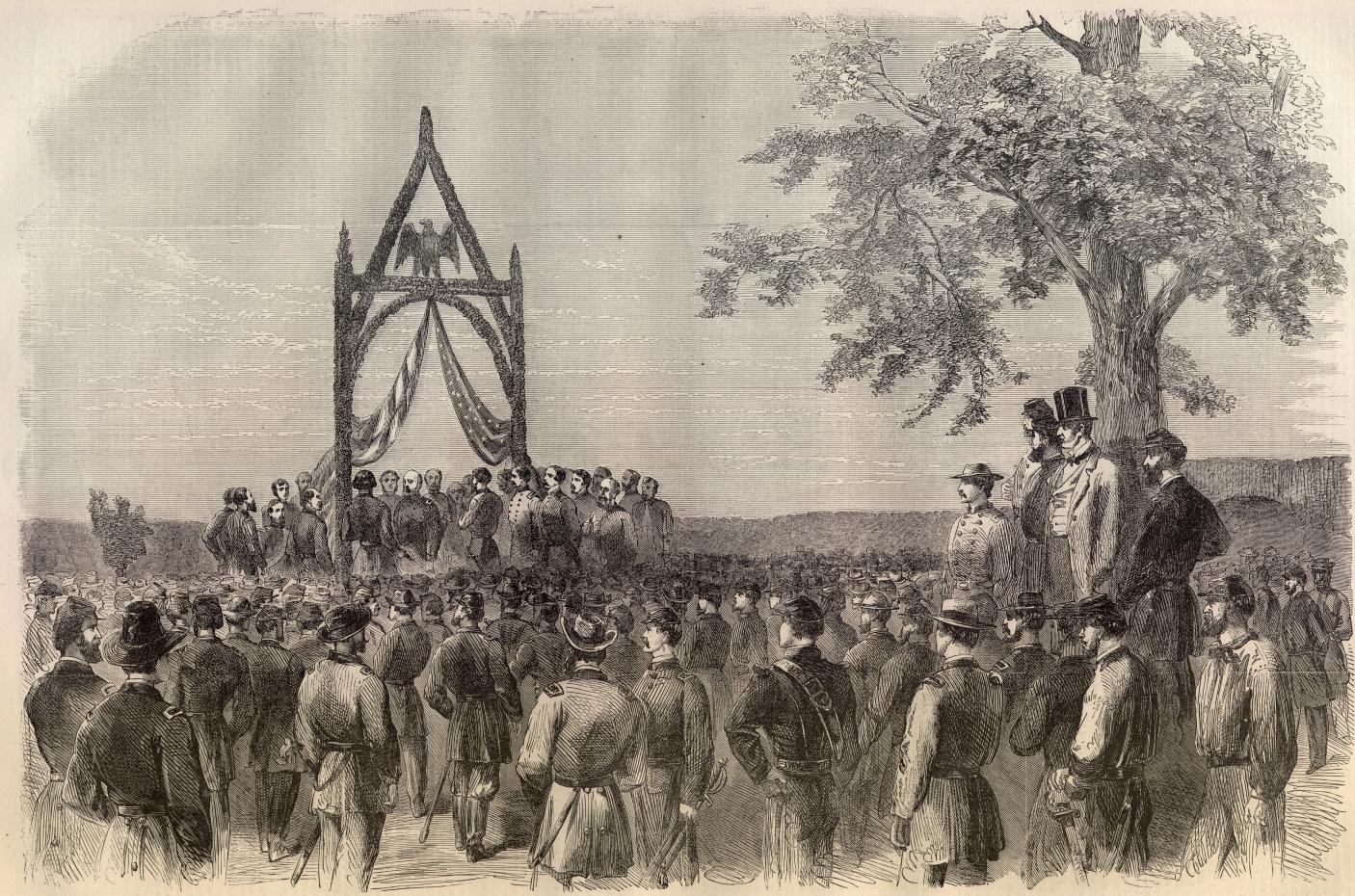
THE ARMY OF THE POTOMAC—SWORD PRESENTATION BY GENERAL CRAWFORD’S DIVISION TO GENERAL MEADE.—SKETCHED BY A. R. WAUD.—[SEE PAGE 635.]
The image of the sword presentation was published in the October 3, 1863 issue of Harper’s Weekly at the Son of the South. Artist Alfred R. Waud did a bit of verbal reporting in which he agreed with General Meade that sword seemed a waste of money: Although “the presentation made to General Meade, which was a well-deserved compliment to one of our best officers, it may not be out of place to ask why so much money—the sum variously stated from fifteen hundred to twenty-two hundred dollars—should be spent upon a sword which it is not likely the General will wear?”
A week earlier (I’m assuming it’s the same execution) Harper’s published Mr. Waud’s sketch of the execution of the five deserters, which General Meade felt would have a good effect on all his men, especially the new conscripts, who were arriving in greater numbers:

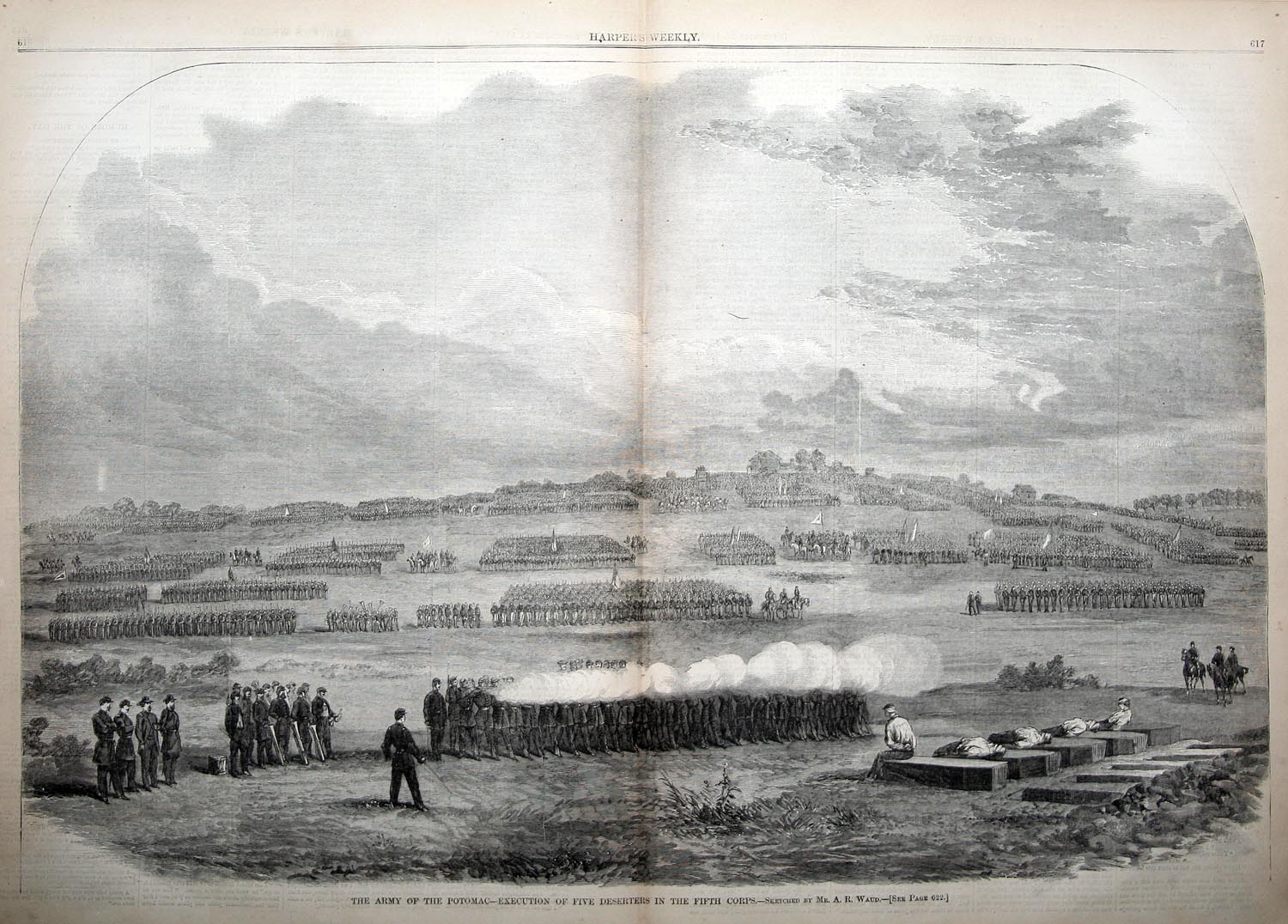
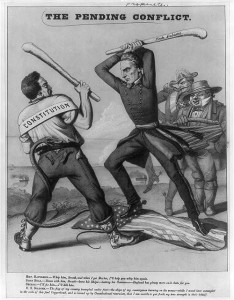
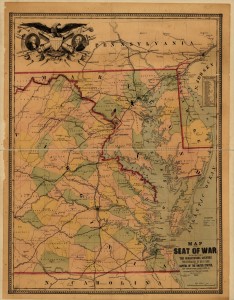
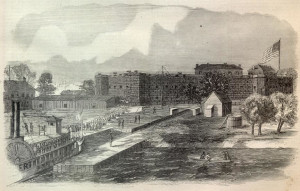
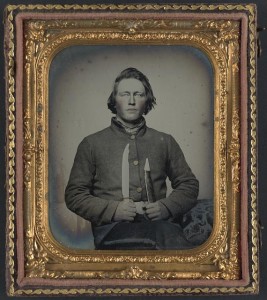
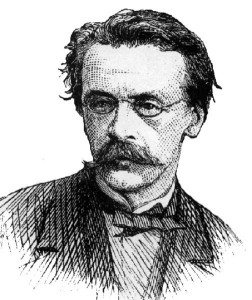
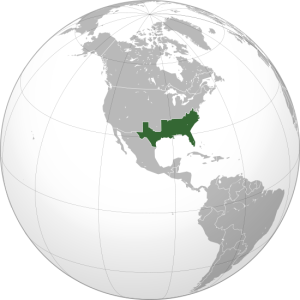
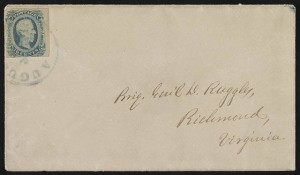
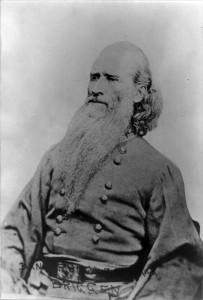
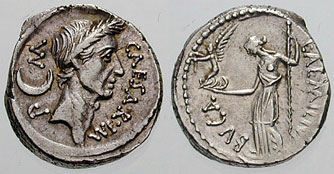
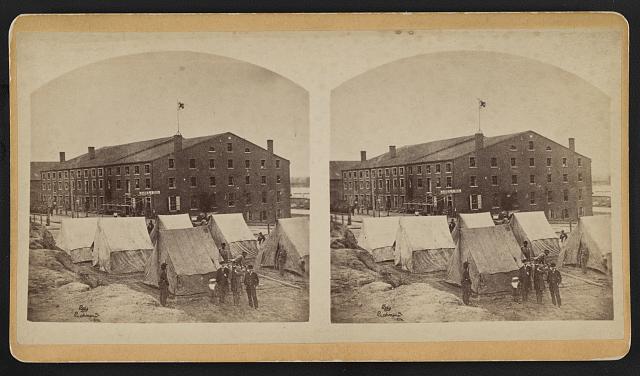
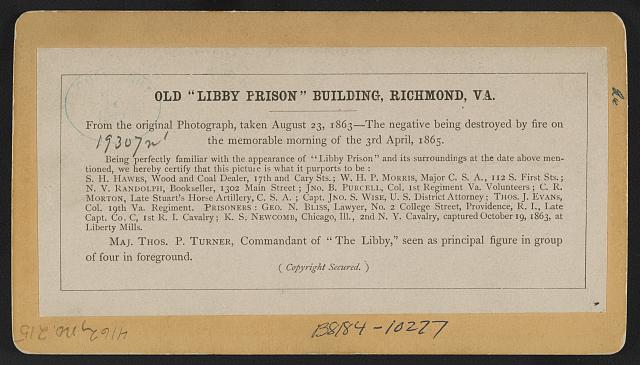
![Plan of part of Richmond, Virginia : showing locations of Rebel prisons [in] winter of 1863. (by Robert Knox Sneden; LOC: vhs01 vhs00025 http://hdl.loc.gov/loc.ndlpcoop/gvhs01.vhs00025)](https://www.bluegrayreview.com/wp-content/uploads/2013/08/jp2.py_.jpg)
